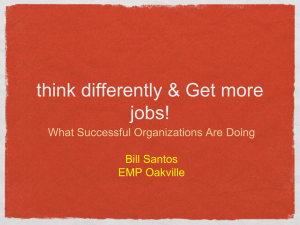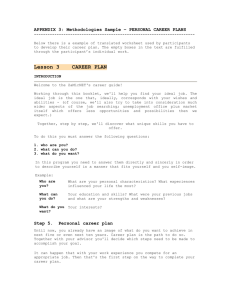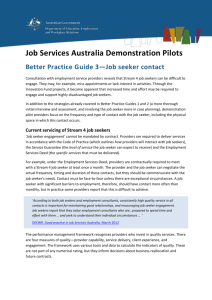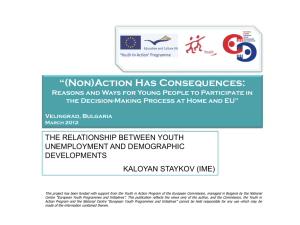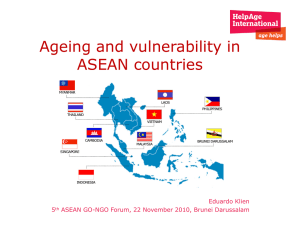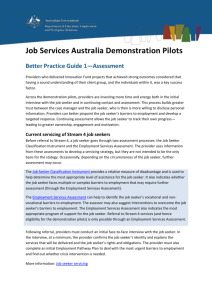Unemployment Non-Payment Period Fact Sheet
advertisement
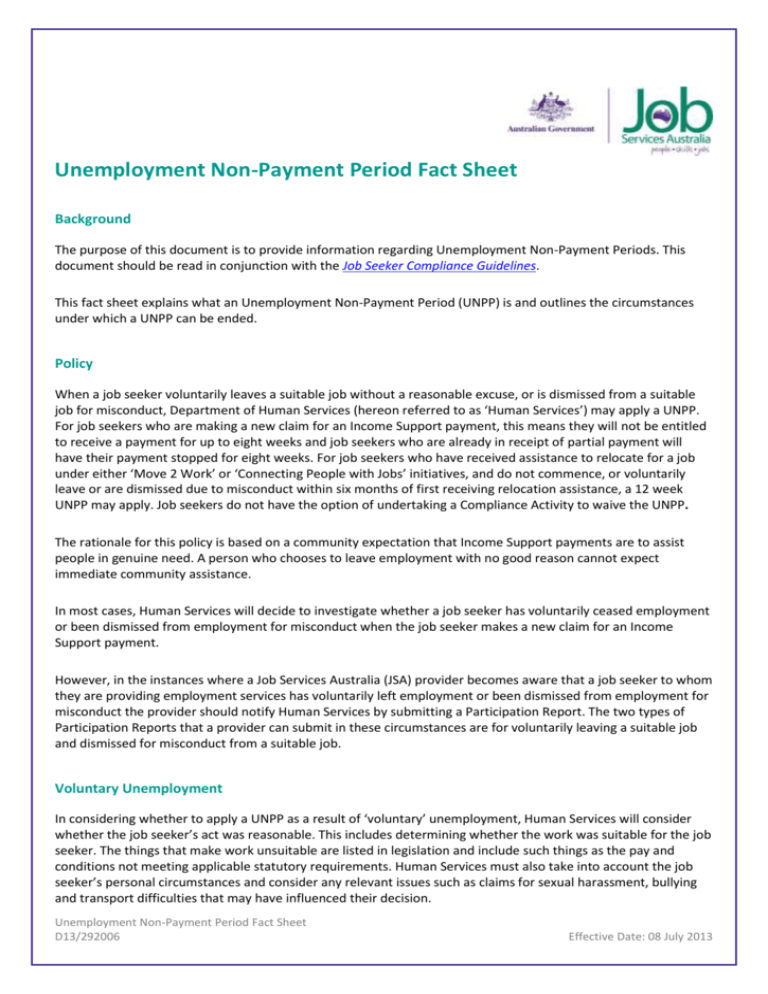
Unemployment Non-Payment Period Fact Sheet Background The purpose of this document is to provide information regarding Unemployment Non-Payment Periods. This document should be read in conjunction with the Job Seeker Compliance Guidelines. This fact sheet explains what an Unemployment Non-Payment Period (UNPP) is and outlines the circumstances under which a UNPP can be ended. Policy When a job seeker voluntarily leaves a suitable job without a reasonable excuse, or is dismissed from a suitable job for misconduct, Department of Human Services (hereon referred to as ‘Human Services’) may apply a UNPP. For job seekers who are making a new claim for an Income Support payment, this means they will not be entitled to receive a payment for up to eight weeks and job seekers who are already in receipt of partial payment will have their payment stopped for eight weeks. For job seekers who have received assistance to relocate for a job under either ‘Move 2 Work’ or ‘Connecting People with Jobs’ initiatives, and do not commence, or voluntarily leave or are dismissed due to misconduct within six months of first receiving relocation assistance, a 12 week UNPP may apply. Job seekers do not have the option of undertaking a Compliance Activity to waive the UNPP. The rationale for this policy is based on a community expectation that Income Support payments are to assist people in genuine need. A person who chooses to leave employment with no good reason cannot expect immediate community assistance. In most cases, Human Services will decide to investigate whether a job seeker has voluntarily ceased employment or been dismissed from employment for misconduct when the job seeker makes a new claim for an Income Support payment. However, in the instances where a Job Services Australia (JSA) provider becomes aware that a job seeker to whom they are providing employment services has voluntarily left employment or been dismissed from employment for misconduct the provider should notify Human Services by submitting a Participation Report. The two types of Participation Reports that a provider can submit in these circumstances are for voluntarily leaving a suitable job and dismissed for misconduct from a suitable job. Voluntary Unemployment In considering whether to apply a UNPP as a result of ‘voluntary’ unemployment, Human Services will consider whether the job seeker’s act was reasonable. This includes determining whether the work was suitable for the job seeker. The things that make work unsuitable are listed in legislation and include such things as the pay and conditions not meeting applicable statutory requirements. Human Services must also take into account the job seeker’s personal circumstances and consider any relevant issues such as claims for sexual harassment, bullying and transport difficulties that may have influenced their decision. Unemployment Non-Payment Period Fact Sheet D13/292006 Effective Date: 08 July 2013 Human Services will not apply an UNPP if they determine the job seeker’s voluntary unemployment was reasonable. Unemployment as a result of misconduct In considering whether the unemployment was a result of misconduct, Human Services must first consider whether the work was suitable. A job seeker is regarded as becoming unemployed as a result of misconduct if they have been dismissed, or given the option of resigning, because of: Deliberately failing to produce or deliver a reasonable amount of work; Unauthorised absences from work without a good reason; Improper behaviour or practices, such as theft, assault or harassment of other employees or customers; Actions that cause serious risk to the health or safety of other employees or customers; or Actions that threaten the reputation, viability or profitability of the business. A job seeker who was dismissed for lack of ability to do their job or even for incompetence cannot be considered to be unemployed due to misconduct unless their behaviour was within their control. Ending Unemployment Non-Payment Period Job seekers who are subject to an UNPP do not have the option of undertaking a Compliance Activity in lieu of serving the UNPP. However, job seekers who incur a UNPP can have the non-payment period ended by Human Services at any time if they fall within one of the groups of vulnerable job seekers specified in a Legislative Instrument and if serving the non-payment period would cause them severe financial hardship. Identified vulnerable job seekers For the purpose of ending an UNPP, the specified groups of vulnerable job seekers are those who have: A dependent child or children; Other significant caring responsibilities; A diagnosed illness, impairment or condition requiring treatment to manage the illness, impairment or condition, and who cannot afford the treatment after meeting their essential expenses; A diagnosed cognitive, neurological, psychiatric or psychological impairment or mental illness; or No access to safe, secure and adequate housing, or are using emergency accommodation or a refuge. Severe financial hardship Severe financial hardship means that the job seeker has less than $2500 in liquid assets (for a single person) or, if they are a member of a couple, less than $5000 in liquid assets (including their partner’s assets). Stream 1 Limited Job seekers who are subject to an UNPP are eligible to volunteer to receive Stream 1 limited services during the non-payment period. Unemployment Non-Payment Period Fact Sheet D13/292006 Effective Date: 08 July 2013
